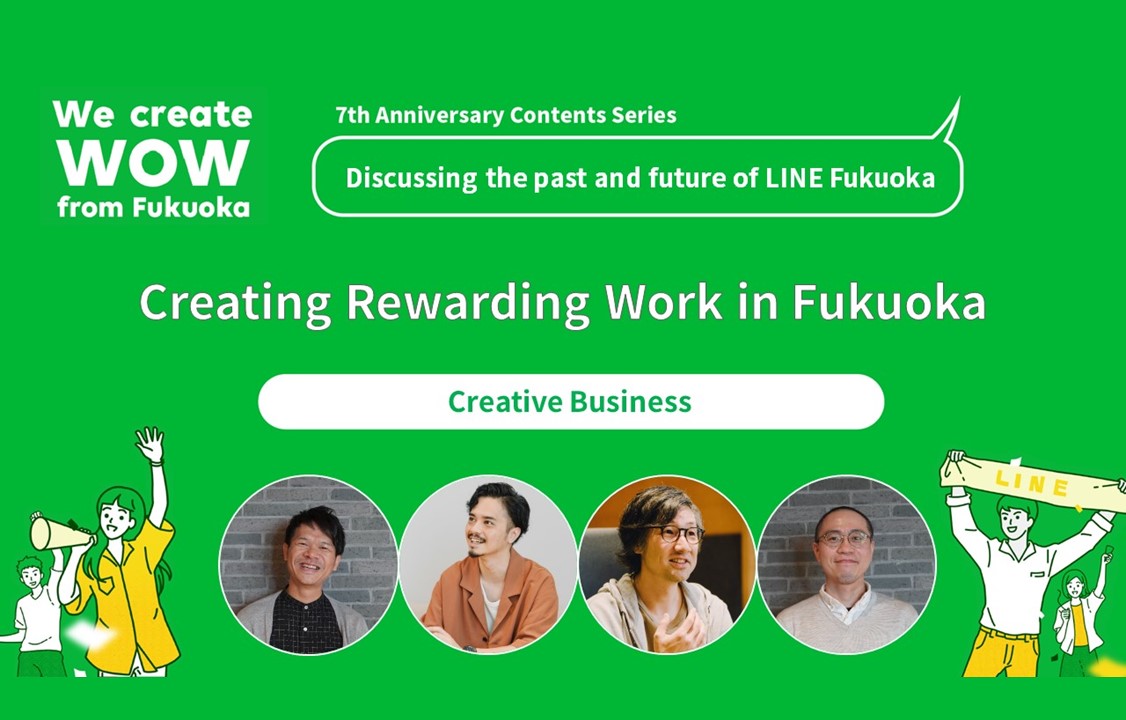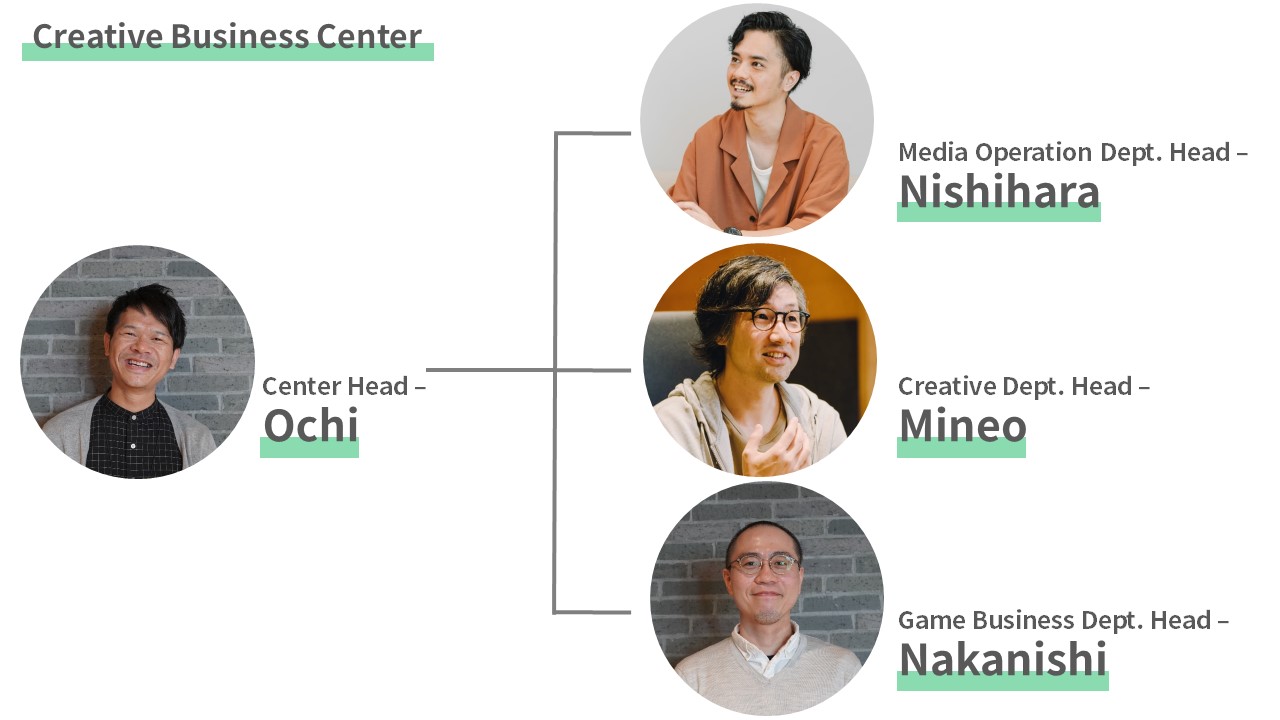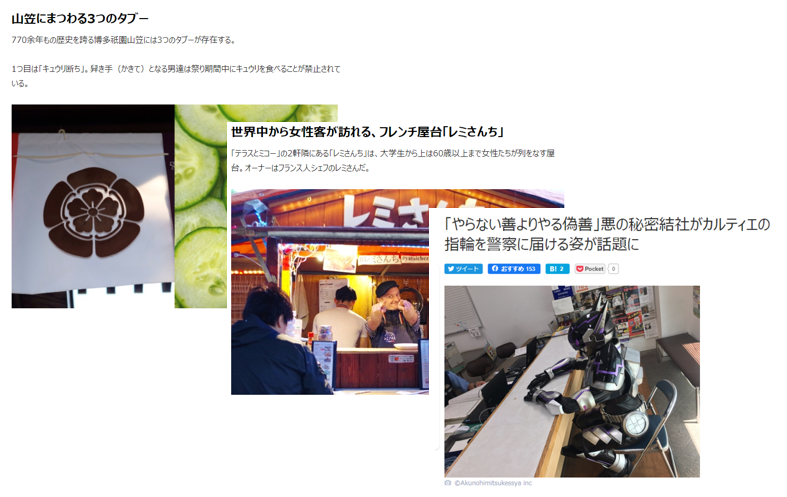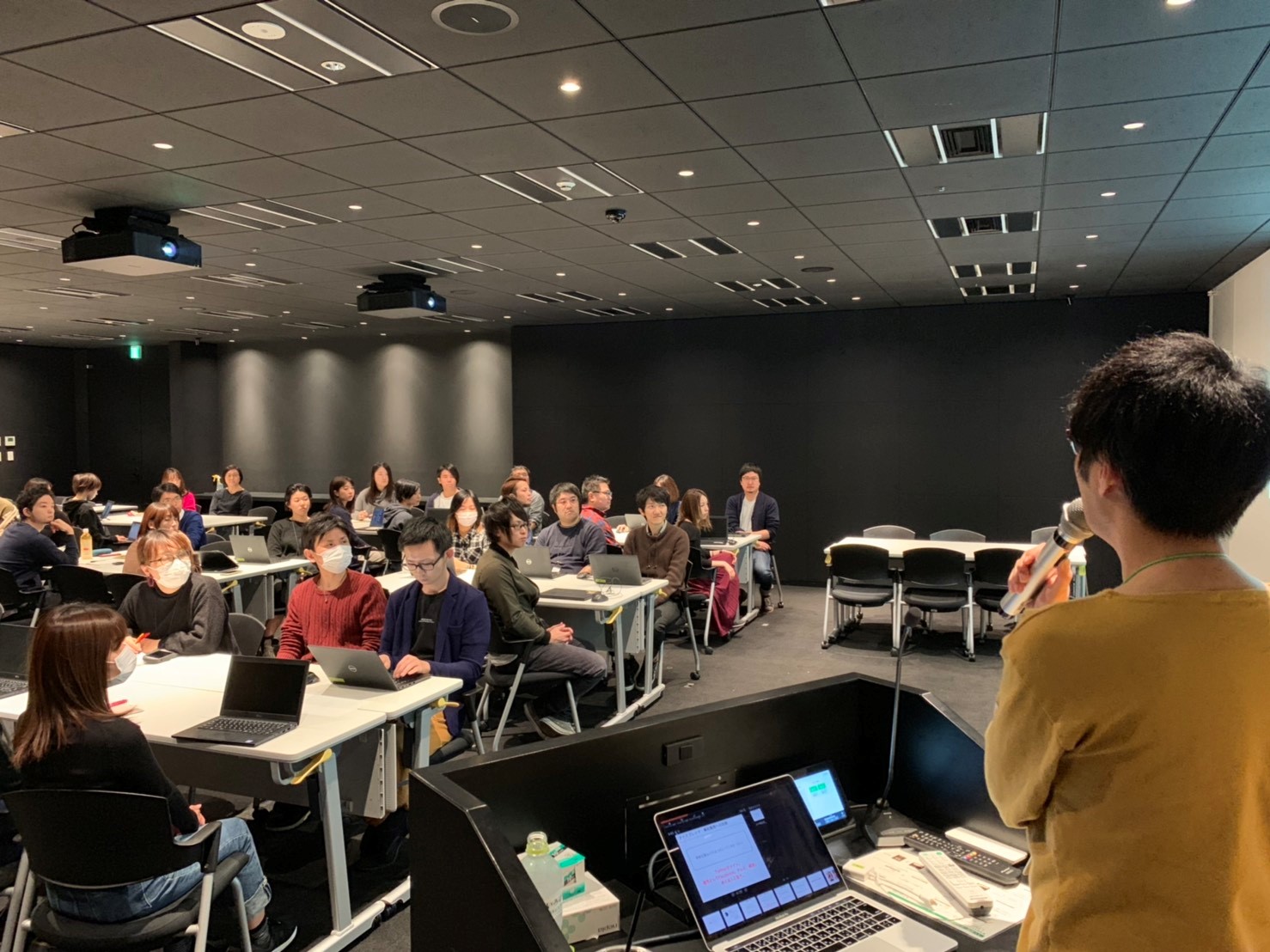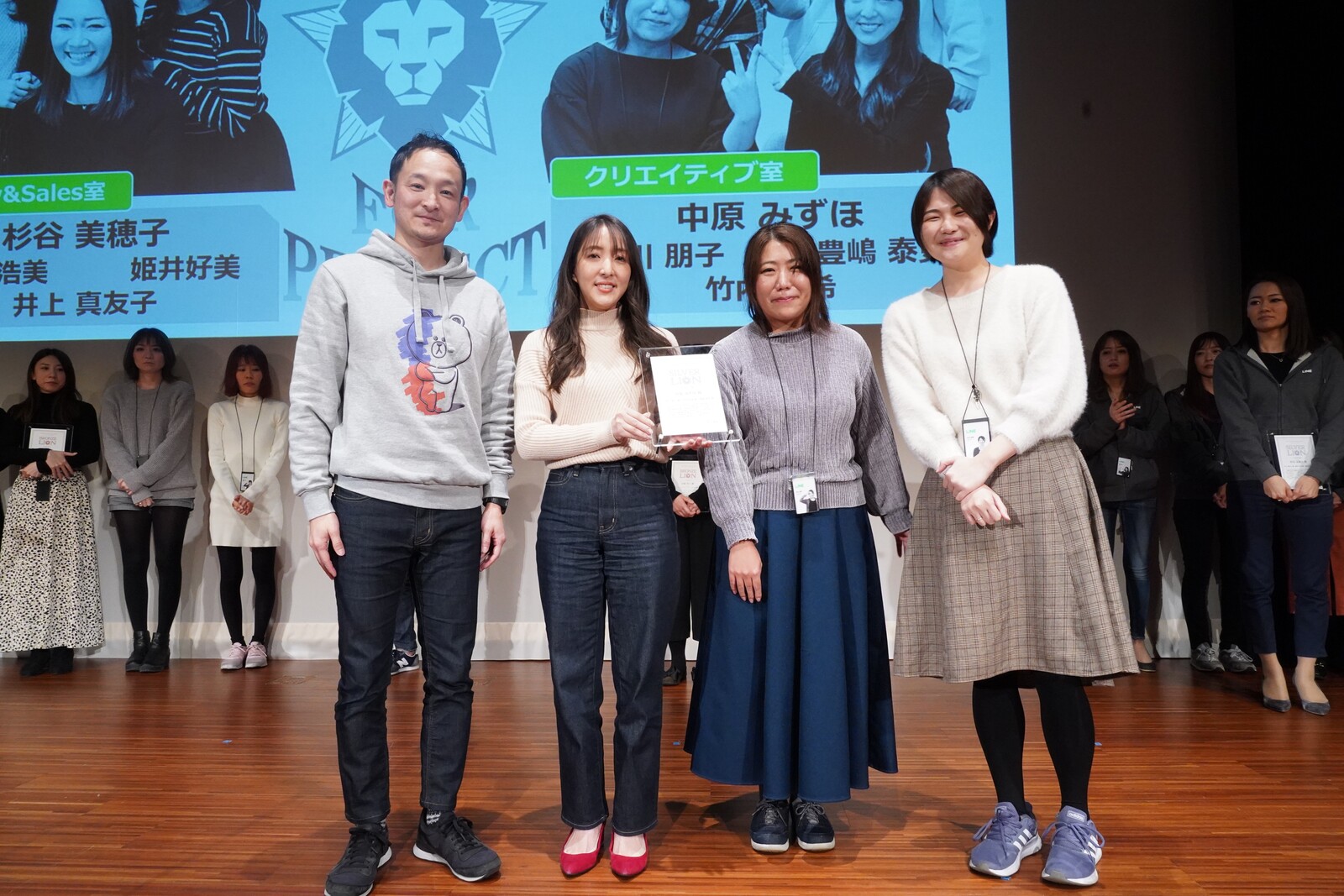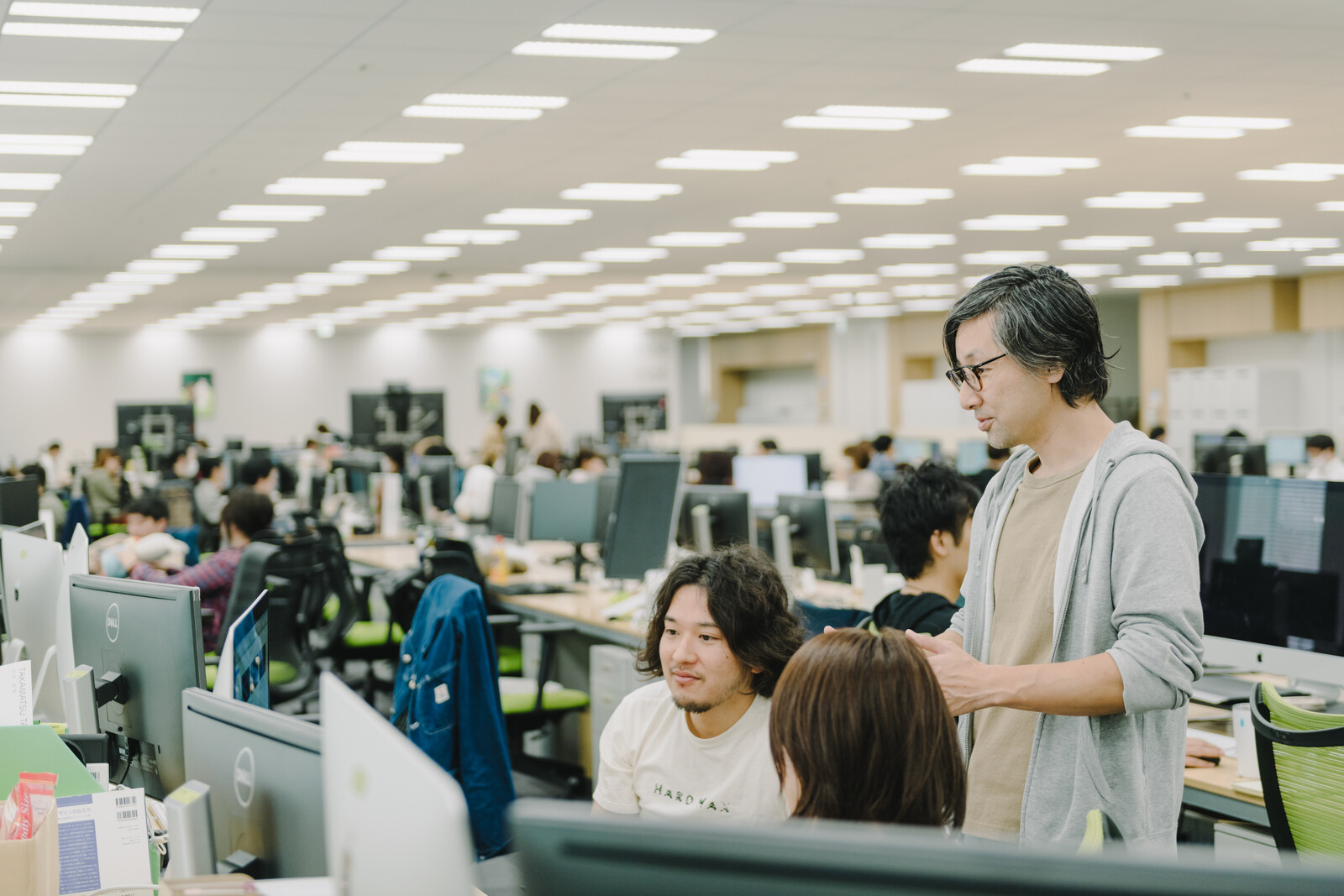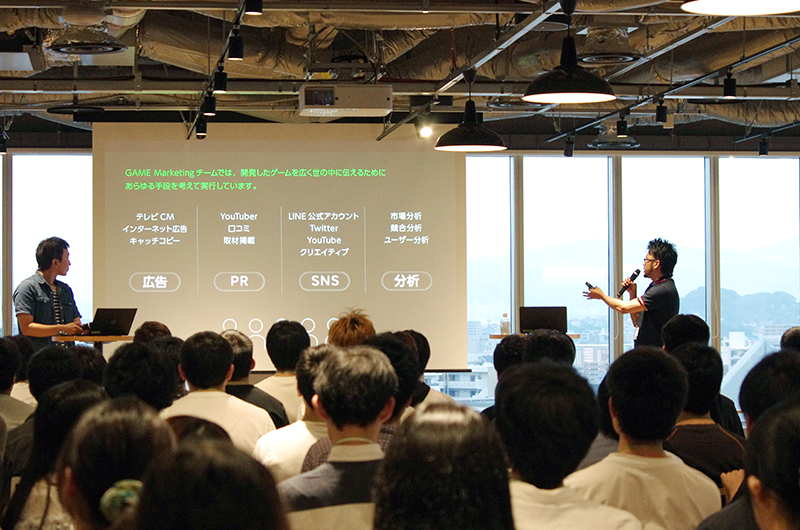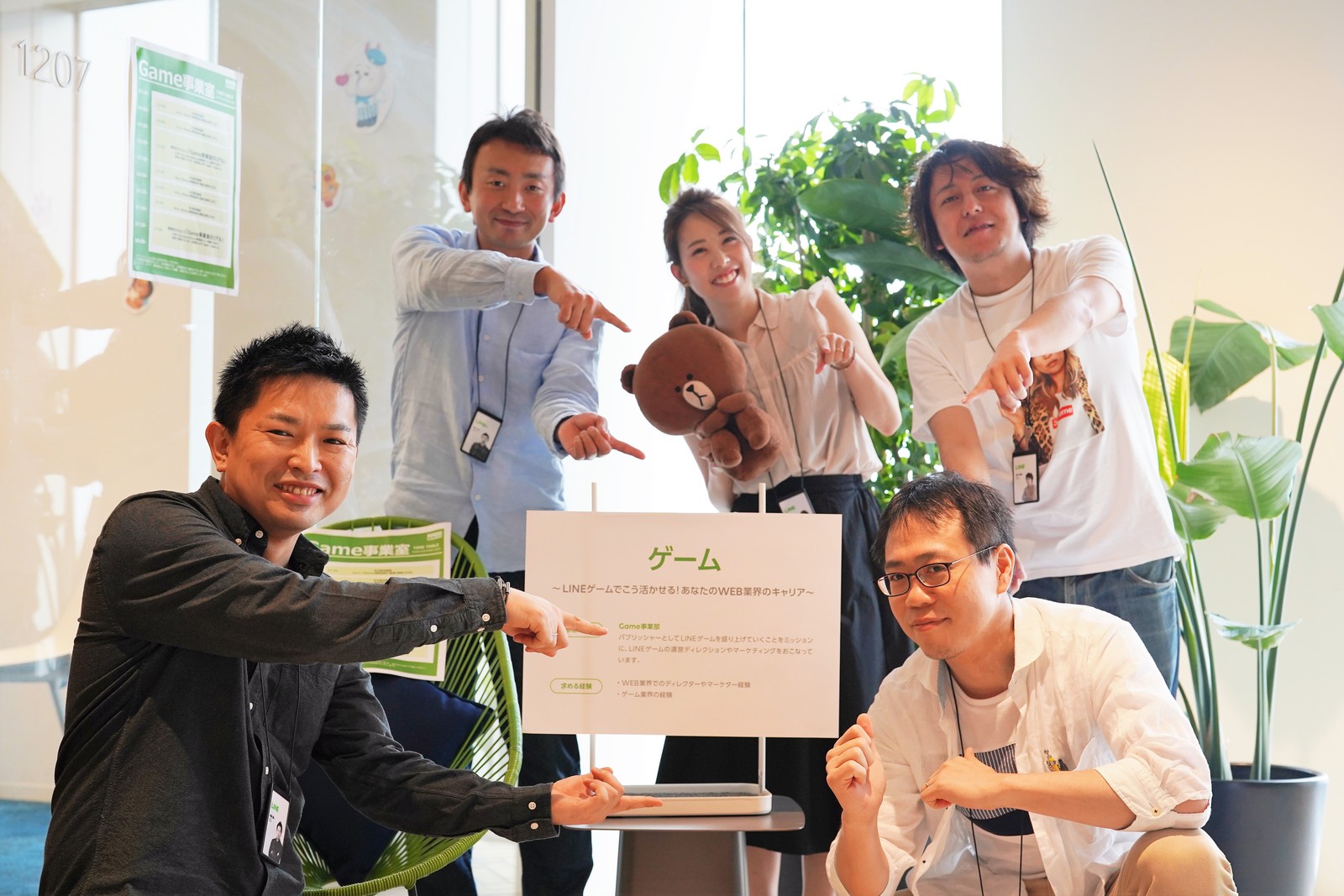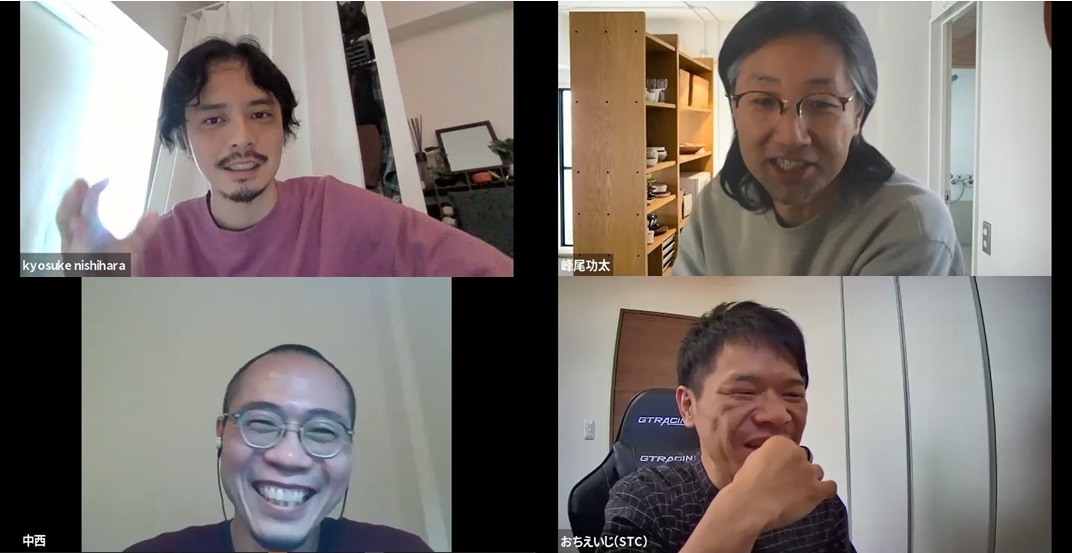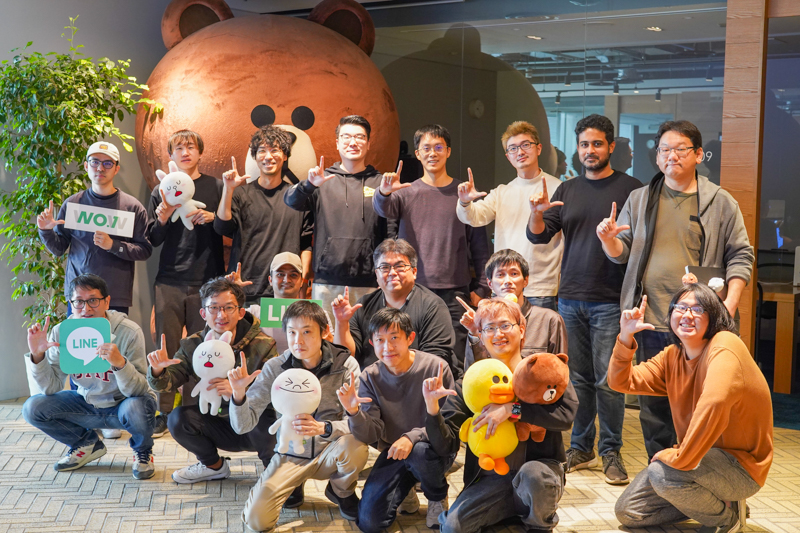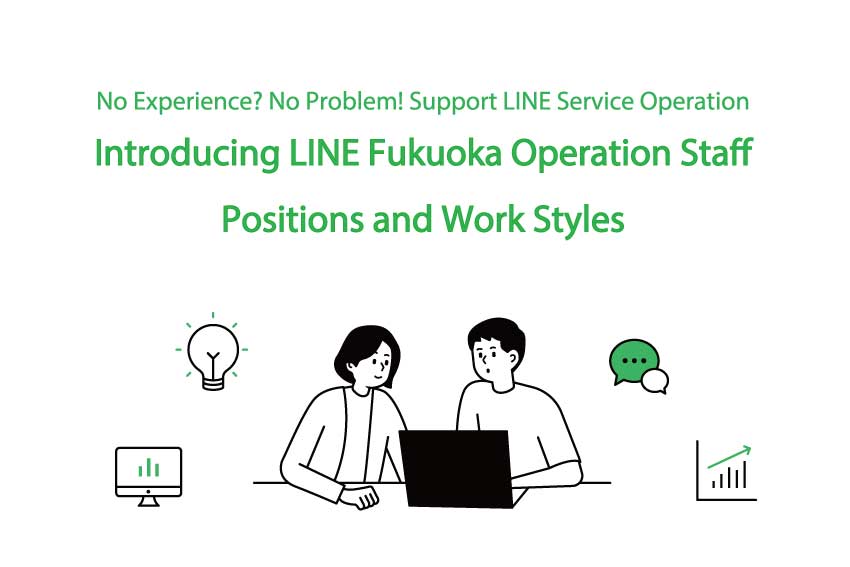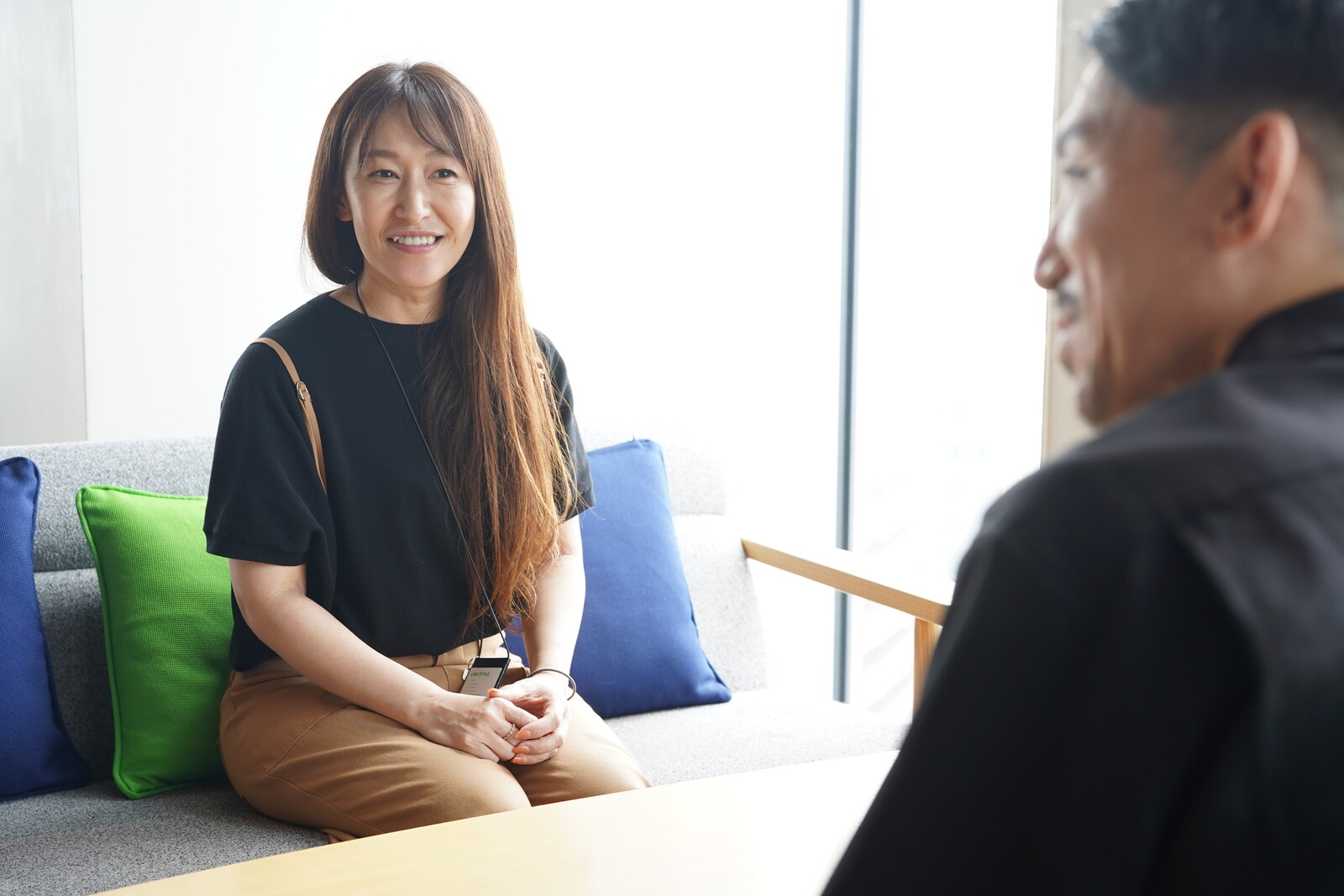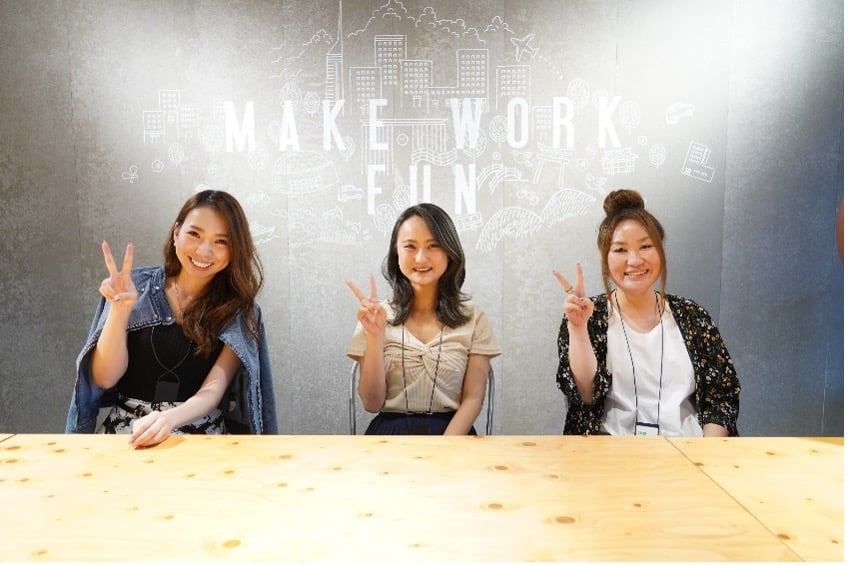[Notice] Effective October 1, 2023, LINE Fukuoka has changed its company name to LY Communications. Articles published on or before September 30, 2023 were written with our former company name.
LINE Fukuoka celebrates its seventh anniversary on November 18. In that brief period, the company has rapidly expanded in both organizational scale and the functions that it is equipped to perform.
In addition to re-introducing you to the functions that LINE Fukuoka serves, for our seventh anniversary project, we sat down with several department leaders to ask them how things have changed over the last seven years, and what challenges they plan to take on going forward.
In this issue, we sat down with our "creative business" departments involved in media operation, design, and games.
This time we interviewed:
Media Operation Department
Embodying "BCP in LINE's News Media" and Delivering Content Unique to Fukuoka
― The current Media Operation Department was created to take on operation work for user-driven media such as "Naver Matome." Now in 2020, they are involved in operations for multiple news media outlets such as LINE NEWS and livedoor NEWS as well as user-driven media. The scope of their work has expanded to include editing and writing in addition to the planning and operation of fan platforms.
Nishihara: The department was created on the premise of wanting to bring more work to Fukuoka. Especially in media-related jobs, the Tokyo metropolitan area continues to have more career options. I've worked to expand the scope of our work with a desire to create an atmosphere of "being able to work in Fukuoka without needing to go to Tokyo."
At the same time, creating value that's unique to Fukuoka (such as by producing articles that utilize our regional characteristics) is important to me. As the media and work we handled expanded, our members' individuality began to thrive, and more team members with various backgrounds joined the company. I felt it when the cycle of "work bringing in new people, and people creating new work" started to take effect.
Utilizing the strength of being rooted in Fukuoka, the covers stories and creates articles about hot topics in Fukuoka. See the actual articles here: (Sorry, only available in Japanese)
"Hypocrisy is Better Than Doing Nothing" - Underground Secret Society Turns In Cartier Ring to Police, Catches Eyes
― Feature migration began for backup organizations that were established based on business continuation planning (BCP) measures for livedoor NEWS in 2016 and for LINE NEWS in 2019. These organizations are already prepared to deliver necessary information quickly and maintain media services, even in the event of a large-scale disaster where features in the Tokyo area are suspended.
Nishihara: BCP is one of the reasons LINE Fukuoka exists. It's also our responsibility as a service provider with a lot of users.
At the same time, I personally wanted us to be a department that "collects and delivers vitally important information." My experience with the Great East Japan Earthquake in 2011 is the source of that feeling.
After the earthquake, users in Eastern Japan collected information about "availability at evacuation shelters" and "places to purchase necessities" on Naver Matome. I was involved in consolidation work at the time, and while I was moved by their actions, I also felt powerless because we weren't collecting vitally important information like that and delivering it to users.
I started thinking that I'd like the department to be able to deliver necessary information even if something happened in the Tokyo metropolitan area, and I wanted to be in charge of news media so I could make that happen.
I didn't have experience in news media operation, but I volunteered by saying that our department wanted to do the work. We gradually received more work starting in around 2016, and we've slowly but surely expanded the scope of our work by creating more added-value than we were charged with.
The at work. They currently have around 70 employees, who are involved with operations for various types of media.
― Several managers have been appointed this year, haven't they?
Nishihara: Personally, I didn't think I had the capability when I was made the department head. I still have a long way to go, but I've learned a lot since I took up this position.
My experience of being "shaped by position" is exactly why I hope to proactively provide opportunities to my team members. I believe that having leaders with different backgrounds and ways of thinking allows us to make better decisions as an organization.
― What kind of challenges do you plan to take on in the future?
Nishihara: I want the department to become one that doesn't just connect users and content, but also has the capacity to value their experiences after that as well.
For example, indicators such as how many views things like promotional videos get are important, but I want the department to be keenly aware of what kind of impression users get from the content we deliver, and what that impression leads them to do.
This is just my personal goal, but I want the department to become one that can project a social presence of taking on the challenge of crossing organizational and service boundaries, as well as of being able to change company rules and systems for the better.
A workshop to improve editing skills held together with the Head Editor from Tokyo
Creative Department
Expansion in Design Work Highly Involved in LINE Services. Increasing "Reproducibility" as a Department
― Within the Development Center, the Creative Department began as a team of just two people to create illustrations for LINE Stickers. The department has since expanded to more than 60 members and is in charge of a variety of design work related to LINE services, such as LINE Sticker direction and creation, theme design and packing¹, as well as design and operation of the user interface (UI) for LINE service landing pages.
¹Packing is the process of getting color codes or the numerical values of elements from a design and applying them to a theme.
One achievement that stood out in particular is that Fukuoka is scheduled to completely take over future direction of LINE Stickers, which the department has been responsible for creating since its establishment.
Mineo: For the Illustration Team in Fukuoka to continue creating value, I think it's key for us to take on more upper process work. We need to consider what kind of stickers we should make together with our clients.
LINE Fukuoka has in-house illustrators, and I thought we could make some interesting proposals if we took on direction work, so we began doing that in August 2019.
As design professionals, we here at LINE Fukuoka are in charge of the creation phase. If we can divide our roles so that LINE Corporation takes on training and education for alliance members and creators, new possibilities open up for both companies.
A "Sketch Session" held by the Illustration Team. They actively take on work to polish their skills.
― The team began designing things like banners related to service operation in 2017, and has expanded into UI design since 2018.
Mineo: Many designers are interested in creating a service. That's exactly why a lot of our team members chose to work at LINE. In order to support the growth of team members and create an enjoyable working environment, I'd like to further increase the amount of design work that's directly involved with services.
From a BCP perspective, our value is being prepared as LINE's Creative Department with a system that will remain functional in the event of something happening in Tokyo.
― In addition to expansion in scope and sophistication of design work, we get the impression that the department has evolved in terms of efficiency as well. One of its efforts in 2019 was the automation project for LINE Theme packing, which designed tools that complete the packing process 64 times faster than when it's done manually. The project gained a lot of attention within the company as well, taking the most employee votes in the "LFK Value Award".
Mineo: That's something we achieved as a result of a crisis. Whenever the LINE app underwent a major update, we had to do packing work quickly and with a limited number of people.
When I calculated the man hours, we had nowhere near enough staff. Even so, our team members worked proactively and independently on automation.
― We were surprised to hear the department designed the tools itself. That's something you would usually request from the Development Department or a contractor.
Mineo: Right, that took me by surprise too. (Laughs) In addition to having members who were originally educated in system design, team managers cultivating a culture of polishing one person's idea into an even better one as a team was a big factor.
The packing automation project received the most employee votes in the 2019 LFK Value Award. The department has improved its usability by conducting multiple interviews with the members who actually use it and performing tests.
― As the current Department Head, the department expanded around you Mr. Mineo, but since 2019 the number of new managers has also been growing, and we get the impression that it's also evolving as a department.
Mineo: The scope of the work we were in charge of rapidly expanded, and at the end of 2018, certain people felt that we had reached the limits of what we could do with a top-down management style. If we didn't get organized, we wouldn't be able to catch up to the speed of expansion.
I think the department would still have run if I had stepped aside, but we weren't putting much effort into cultivating management so that the department could continue to run even without me. So over the past two years, I've particularly kept "reproducibility" in mind when building the department.
I feel that bit by bit, we've become a department that can look ahead instead of responding to situations as they arise.
― How do you want to evolve the department in the future?
Mineo: I get the impression that many people involved in creative work aren't very interested in management, but just as "design thinking" has become a hot topic in recent years, thought processes and experience in design will definitely come to life in organization and business creation.
Staff who can take charge of both creative work and management are valuable. If more department members take an interest in organizational design, I think that will become one of Fukuoka's strengths as well.
Game Business Department
From Marketing to Monitoring, Comprehensively Taking on the Work of Operating LINE games
― The Game Business Department is responsible for various types of work concerning LINE games. Starting with customer support (CS), it is now in charge of most of the work required to offer our services including marketing, direction, and monitoring, and some project planning. It is also a "business division" that comprehensively handles all of the work tied to one of our businesses, which is rare in LINE Fukuoka where organizations for each function we serve have increased.
Nakanishi: Just like the Media Operation and Creative Departments, we had the intention of doing everything that can be done in Tokyo if we were going to do it at all. There was also the standpoint of LINE Fukuoka's growth as a company to consider, but as LINE games themselves expanded rapidly, we needed to be able to take charge of all sorts of processes in Fukuoka in order to sustain that growth.
The department shares its knowledge outside of the company as well. Here, members hold a talk with students who want to break into the game industry about the skills and knowledge they'll need.
― As new work continually increases, we believe that the necessary skills have changed as well. How have you responded to that?
Nakanishi: Experienced members joining the company is, of course, a part of it, but members who originally handled CS broadening their skill set had a big impact on our current ability as a department.
One of the unique characteristics of our department is that we have a lot of members who responded flexibly, gradually specializing their skill sets even as the scale of our services and the content of our work changed drastically.
However, that's not to say that we handled improving team member's skills or evolved as a department in a "calculated" manner. We grew to almost 100 members, and the issues we were facing as a department - such as the ambiguity of how the skills that our members had would be utilized and how each team would contribute to achieving our business goals - began to surface.
Once the phase of sudden growth in our services passed and we entered a phase of streamlining and quality improvement, we needed to take another look at the definitions of our roles and organize our workflow.
― From 2019 to 2020, you've also restructured your department, right?
Nakanishi: We broadly split into three teams (one for each of our roles): the Marketing Team handles the creation and execution of structures for our direct sales building; the Direction Team contributes to sales through managing the progress of releases and operational planning; and the Operation Support Team contributes to sales by maintaining the quality of our services and customer support. As their respective roles and directions became clear, each team has actively taken steps to improve our operations.
― Moving forward, how do you want to evolve the department?
Nakanishi: We've done a lot to establish our roles within the Game Business Department. In the future, I hope to increase the value we can give back to users by further solidifying connections not just within our own department but also with other departments in LINE Fukuoka, such as Localization, Customer Care, and QA.
I want the department to be aware of the scale of LINE game users and our responsibility to them, to enjoy the significance and growth of the role the Game Business Department plays, and to create new value in the game industry. We're aiming to be the best game operation group in Japan!
The "Hiring Day" career recruting event held in 2019.
Creating "Rewarding Work" and "Teams That Can Grow" in Fukuoka
― Even though the content of your work is different, it feels like the idea of "creating more interesting and rewarding work" is common for your three departments.
Nishihara: In 2019, LINE Fukuoka was voted "the best workplace" in Fukuoka, but to be honest, I felt a gap between that and reality. It made me think "Were we really that great?" Of course we've grown a lot as an organization, and there's a lot for us to be proud of, but we've still got a long way to go.
Over the past seven years, the work we do that really surprises people and makes them say "Wow! There's work like that in Fukuoka!" has increased bit by bit.
I'd like to continue watching the industry and trends, and intentionally create both necessary and interesting work in the future. By increasing work like that, I think LINE Fukuoka will become a more interesting place.
Nakanishi: I agree. Are we raising the market value of our employees, and are we giving them rewarding work? That's a perspective I want our company to continue to value in the future.
Mineo: The Creative Business Center was created in 2019 made up of our three departments, but to be honest, at first it was hard to find common ground, and I wondered what the point of bringing the departments together was. (Laughs)
Ultimately, though, I've learned a lot from working with the two of you, and gotten a lot of clues about organization building. I hope we can create situations like this for managers as well.
― As the current Head of the center that these three departments comprise, we'd like to ask you the last question, Mr. Ochi. How do you want the Creative Business Center to change in the future?
Ochi: When the center was established in 2019, we considered how to bring these departments that are in different fields together, and realized that what they have in common is that their work is "communicating" with users and the world through content. That's why we made our center's policy "pursuing 'the power to convey' in order to raise the competitive edge of our content."
All of us mentioned this, but I want the company to be one that people would choose even if we hid our location because of what we do and our atmosphere of growth potential, and not just because it's Fukuoka.
It's been two years since the center was created, but we're still in a transition period. There are still management issues to solve, such as creating a work environment, designing systems, and managing mindsets and motivation to imbue each employee with the "power to convey".
However, each department has utilized its strengths to create policies and strategies as well as implement tactics, so we're evolving into an independent organization faster than I expected.
I'd like our center to be one where each department can come together as one business unit, manage itself, and create profits. When we accomplish that, I believe that we'll definitely be an organization that has plenty of "power to convey" regardless of the content, and one that is at the forefront of creating WOW.
A message from the editor/LINE Fukuoka Press
Many of our department leaders spoke about "a desire to create more interesting work in Fukuoka" throughout our interviews for the seventh anniversary project. They're aiming to make LINE Fukuoka a company that people from all over the country choose to work for not just because of Fukuoka's charm as a city, but because of what we do and our team atmosphere.
This interview inspired us to try even harder so that LINE Fukuoka can be that kind of company. Thank you very much Mr. Ochi, Mr. Nishihara, Mr. Mineo, and Mr. Nakanishi!
In our next issue, we'll be bringing you the past seven years of our "technology" departments, such as service development, QA and testing. We hope that you'll take the time to read our next post as well!
▼ 7th Anniversary Project - Discussing the Past Seven Years and the Future of LINE Fukuoka [Seven posts in total]
You can also follow us on social media to get regular updates about the initiatives LINE Fukuoka is undertaking!
